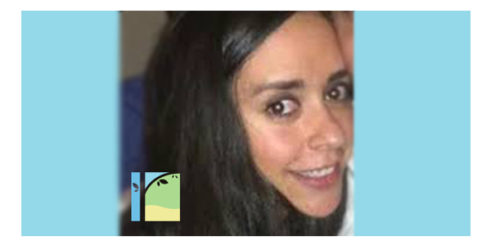As a little girl, Pam Polizzi dreamed of a career in fashion. When she was a teenager, she learned to sew and began designing clothes. But at 18, when deciding where to go for college, Pam realized she had to radically change direction.
In high school, Pam suffered from an eating disorder. As she began to pursue recovery, she recognized that the fashion world was not a good fit for her: “I knew I would never fully recover if I was in a profession where the societal standards of beauty were solely based on a woman’s size, leading to an unattainable determination of one’s worth. Although I love fashion, it wasn’t a healthy choice for me to be in the field.”
At this point, Pam saw clearly what she really wanted to do: help others who were also struggling. So she turned her professional focus towards the field of eating disorder treatment, and obtained a Master of Social Work.
Entering the counseling field was a radical act in her community and family. Prior to her own treatment, her family had not had any exposure to “therapy culture.” Her entry into this field hugely impacted them, “making it less taboo.” This inspired one of her life’s missions: to challenge the stigma around mental illnesses. “I am an advocate not only for eating disorders, but for mental health in general. There are a lot of misconceptions about it.” She had discovered that “I could have the same passion and drive for something that felt more important to me than fashion.”
Pam continued her studies with two years of postgraduate training at The Center for the Study of Anorexia and Bulimia at the Institute for Contemporary Psychotherapy in New York City. She sensed that “although I had personal experience with an eating disorder, it didn’t mean I knew how to treat every eating disorder. My specialized studies gave me a foundation.”
When Pam encountered Greta Gleissner, Founder of Eating Disorder Recovery Specialists (EDRS) online, she immediately reached out: “What Greta was doing was really innovative and exciting. I saw a lot of opportunity for growth for myself as a clinician and for the company.” Pam now serves as the Director of East Coast Operations at EDRS, in addition to having a part-time private practice on the Upper East Side of Manhattan.
Pam’s first hand experience in letting go of an eating disorder enables her to support her clients with palpable authenticity. She understands the ambivalence and unease that can arise in the transition from sickness to health: “When I began finding myself as a person who didn’t solely identify with my eating disorder, it was really confusing.” She gently encourages her clients to take the approach she found most helpful: “to be honest with myself, and not judge myself for what I perceived as failure.”
Although Pam does not tell all of her clients about her recovery, she draws strength from it as a provider. She explains she balances her experience with that of her clients: “I carry my recovery with me, but it’s in a different place when I’m working with clients. I try to be there, with them, and hold what’s going on for them.” Pam prioritizes trying to understand the various things that influences a client’s struggles, whether it manifests as an eating disorder, depression, or substance abuse: “I work on my ability to push through my clients’ transference and psychic pain, to get to the other side.”
One of the greatest discoveries Pam has made in her work is the imperative of consistent self-care: “Even after being in recovery for 12 years, I still need to remember to take care of myself. I try to focus on all the good in the moment, and to stay in the moment, which is really hard to do.” A cornerstone of Pam’s self-care philosophy is self-compassion, which she both practices herself and encourages in her clients. She also takes ownership of the challenges she faces as a person living in a fast-paced, competitive culture: “Slowing down, in my personal and professional life, has been something I’ve really struggled with.” She takes refuge from the hecticness of life in yoga (but is forgiving when she cannot get to a class) and reading (especially Buddhist psychology and other literature with which she feels a “soul-connection”). And she turns inward to connect with her sense of self-worth: “Holding numerous degrees does not mean anything at the end of the day if you’re not well, nor does it ensure a pathway to a content and purposeful life.”
As Pam continues to learn more about her true self–the self that her eating disorder once stifled–she believes more and more that full recovery is possible for anyone: “There is hope for my clients; they are not the only ones who have gone through this.” A significant part of the work of eating disorder treatment, in Pam’s view, is “keeping motivation and momentum going. Try not to get bogged down by every task to do, or bump along the way. You do get stuck, but there’s a way to get out of that. Recovery treatment always presents an option for another way. You do not need to struggle and suffer.”
Of course, many clients feel ambivalence, disbelief, and even resistance. And Pam is more than happy “to remind clients that recovery is possible a couple hundred times.” She learned the value of reinforcement through her own supervision and therapy: “Sometimes we hear something many times, but never really hear it. So repetition helps. Say what they need to hear until they can say it on their own and do it for themselves.” As a recovery coach and therapist, Pam sees herself as “a crutch along the way, until clients can walk on their own.”
Bottom line, Pam wants everyone who struggles with an eating disorder to know: “Recovery is worth it. It is a process, and it’s hard, but so is life. If you can get through this, I truly believe you can get through anything.”



